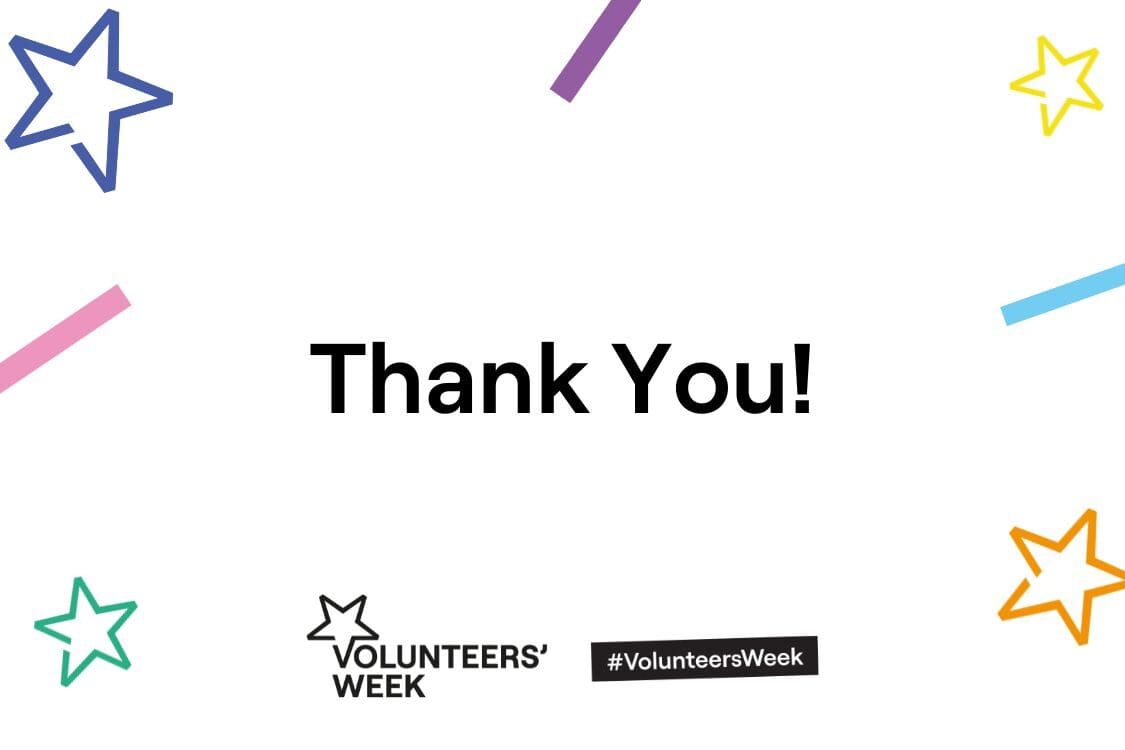Keep up to date with the latest governance news and advice.

New Fundraising Code: What You Need to Know Before November
In this edition of the Governance Blog, we’re reminding VCSE organisations that the new Code of Fundraising Practice will come into effect on 1 November 2025. The Fundraising Regulator has published a revised version of the Code, designed to be clearer, more concise, and easier to navigate. It reflects a more modern and adaptable approach to fundraising standards and is significantly shorter than the previous version. You can read the new Code here: Code of Fundraising Practice

Celebrating the Unsung Heroes Behind Local Charities
As we head into summer, we wanted to spread a short, good news story in this issue of our governance blog! The Interim Chair of the Charity Commission, Mark Simms OBE, has recently released a statement on the Charity Commission Blog to say a big “Thank You” to all the trustees and other volunteers across England and Wales. In his article, which you can read in full here, Mark points

Trustee Recruitment: Updated Advice from the Charity Commission
The Charity Commission has refreshed its trustee recruitment guidance (CC30) to help charities connect with a wider range of candidates and remove common barriers to becoming a trustee. This update follows research by the regulator and think tank Pro Bono Economics, which revealed that only 6% of trustees applied for their role via an advert. In contrast, over half of charities relied on personal contacts to recruit new trustees, potentially

5 Top Tips on Welcoming a New Trustee
The prospect of joining a new organisation as a trustee can be nerve-wracking, especially for those stepping into the role for the first time. However, as the recruiting organisation, you are in a powerful position to make this experience a positive one and set your new trustee up for success in their hugely important role. Here are 5 top tips to help you achieve this: Tailor your induction to the

Charity Mergers: What Are They, and When Should You Consider One?
With growing interest in mergers across the voluntary sector, this issue of our Governance Blog explores what a charity merger involves and why it might be the right step for your organisation. What is a Charity Merger? The Charity Commission states that a merger of charities usually means two or more legally separate charities coming together to form one charity under one governing document and one body of trustees. In

New Right to Neonatal Care Leave and Pay – What You Need to Know
From 6 April 2025, a new workplace right will allow parents of babies in neonatal care to take extra time off work. Eligible employees can take up to 12 weeks of neonatal care leave on top of their existing parental leave if their baby is admitted to the hospital within the first 28 days of birth and stays for at least seven full days. This right follows the Neonatal Care

What is the Charity Governance Code?
Charity Governance Code: Ongoing Review and Updates In this issue of our Governance Blog, we discuss the ongoing review of the Charity Governance Code following public consultation and input from the Charity Law Association’s working group. The updated Code is expected to be published soon, with changes aimed at making it more accessible for small and medium-sized charities. What is the Charity Governance Code? The Code is a practical tool

Governance Blog: New Workplace Recycling Laws
In this issue of our Governance Blog, we are going to discuss the new laws regarding workplace recycling and how they will apply to your organisation. The new rules From 31 March 2025 (or 31 March 2027 for micro-firms), all workplaces (businesses and non-domestic premises, including charities) in England have a legal duty to present the following wastes separated in accordance with the arrangements with their waste collector: dry recyclable

Governance Blog: Converting from a CIC to a CIO
Did you know that it is possible to convert from a Community Interest Company (CIC) to a form of charity known as a Charitable Incorporated Organisation (CIO)? Read on to learn why you might consider making the switch and what the process involves. Background CICs are simpler to set up than charities, with less rigid rules on trading and distributing profits. For example, directors can be paid, and dividends can

Celebrate Trustees’ Week: Resources for Aspiring Trustees
This Trustees’ Week (4-8 November) is a time to come together and celebrate the achievements of the trustees across North Tyneside and indeed the rest of the UK. Trustees play a vital role in shaping the future of our communities by guiding charitable organisations and ensuring they operate effectively and ethically. To celebrate Trustees’ Week, we are encouraging more people to become trustees. To support this, here are five valuable resources

Charity Commission Launches New My Charity Commission Account (MCCA)
Charity Commission Launches New My Charity Commission Account (MCCA): What Trustees Need to Know The Charity Commission has recently reminded all registered charities about the new way to log in to the Charity Commission portal. Last year, to enhance efficiency and comply with data protection legislation, the Charity Commission launched the My Charity Commission Account (MCCA). This new system allows charities to access their online services, offering each trustee or

Updated Guidance: Improving Your Charity’s Finance
The Charity Commission has recently refreshed its guidance called Improving your Charity’s Finances (also known as CC12). The Commission is urging all trustees, even if they are very experienced, to read the updated guidance. The main change has been to write the document in plainer English and a more accessible format so that it can benefit as many trustees as possible. The Commission has also split the content into three

Charity Meetings Guidance Update
The Charity Commission has recently updated its guidance CC48 Charity Meetings now that an increasing number of charities are using virtual or hybrid formats for their trustees and members meetings. During the COVID-19 pandemic, special dispensation was granted to charities to hold online meetings where their governing document didn’t specifically permit them to do so. This dispensation expired some time ago, but many organisations continue to hold online meetings where

Organisational Health Checks: A How-to Guide
Health checks are an increasingly accepted way of identifying how your organisation really works and whilst primarily aimed at smaller organisations they can be used as a starting point for larger organisations. A health check for your organisation is like an MOT for your car. It enables you to look at all the different elements within your organisation and to check that they are working properly and running smoothly. Like

Where are all the Young Trustees?
Taken on Trust research published by the Charity Commission shows that 92% of trustees in England and Wales have an average age of 55-64 rising to 65-74 in smaller charities. A huge swathe of the population (and potentially your organisation’s beneficiaries) is simply not being represented on Boards nationwide. If you are looking to diversify your Charity Board (and many charities are or should be considering this), then trying to

Charities Act 2022: Further Changes Come into Force
Charities Act 2022: further changes came into force on 7 March 2024 – What do they mean for you? The Charities Act 2022 has been implemented in stages with the latest changes having just come into force on 7 March 2024. This post looks at some key changes and what they might mean for your organisation: Sections 1-3 Amending Governing Documents The Act introduces new statutory powers for trusts and unincorporated

Building a Brilliant Board
Finding and keeping trustees is a vital but demanding task for voluntary and community organisations. Put simply, there are always more Trustee vacancies than there are available people to fill these extremely important posts. Some of your trustees may have left or are intending to leave soon. Or maybe you feel your board needs reinvigorating. This should be seen as an opportunity to bring in new skills, experiences, and perspectives to your board.

Charity Commission aiming to open the doors to charity trusteeship
Following Trustees Week in Autumn 2023, the Chief Executive of the Charity Commission, Helen Stephenson, has recently provided feedback on the discussions which she held with Trustees during this time. She has said that the Charity Commission are aware that work still needs to be done to open the doors to trusteeship and that one of the common misconceptions was that trusteeship isn’t suitable for the average person. Helen recounts

The Non-Party Campaigner Code and what this means for Charities
The chair of the Charity Commission has advised that Charities need to be aware of the implications of the new Non-Party Campaigner Code which came into effect on 1 December 2023. This Code will introduce some important changes to electoral law which will be relevant to many charities whose leaders and trustees will see this as a critical moment to speak up for beneficiaries and highlight causes. This continues to

Using AI as a Charity
What is Artificial Intelligence (AI)? AI is a part of our everyday lives. It can have great benefits in terms of efficiency and social good but there are ethical requirements which it is important to be aware of. The Information Commissioner’s Office definition of AI is: “…an umbrella term for a range of algorithm-based technologies that solve complex tasks by carrying out functions that previously required human thinking. Decisions made using AI

